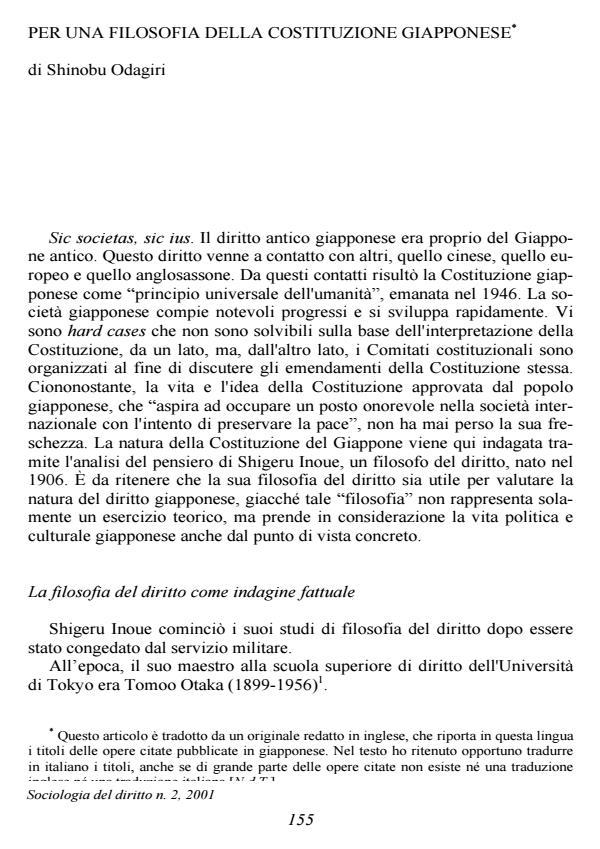Per una filosofia della costituzione giapponese
Journal title SOCIOLOGIA DEL DIRITTO
Author/s Shinobu Odagiri
Publishing Year 2001 Issue 2001/2
Language Italian Pages 18 P. File size 125 KB
DOI
DOI is like a bar code for intellectual property: to have more infomation
click here
Below, you can see the article first page
If you want to buy this article in PDF format, you can do it, following the instructions to buy download credits

FrancoAngeli is member of Publishers International Linking Association, Inc (PILA), a not-for-profit association which run the CrossRef service enabling links to and from online scholarly content.
Sic societas, sic ius: traditional Japanese law was an idiosyncratic feature of traditional Japan. This law then came into contact with other forms of law, from China, from Europe and from the Anglo-Saxon model. From these contacts, in turn, came the Japanese Constitution, enacted in 1946 as a "universal principle of humanity". Japanese society made considerable progress and developed rapidly. Although there are certain hard cases that cannot be solved by interpreting the Constitution, there are Constitutional Committees whose very purpose is to discuss possible amendments to the Constitution. Despite this, the idea of this Constitution approved by the Japanese people, which "aspires to occupying an honourable posi-tion in international society, with the aim of preserving peace", has never lost any of its freshness. The nature of the Japanese Constitution has been investigated by analysing the thinking of Shigeru Inoue, a legal philosopher born in 1906. His philosophy of law can be considered useful for evaluating the nature of Japanese law itself, as his philosophy not only comprises an exercise in theory, but also takes Japanese politi-cal and cultural life into consideration, also from a concrete standpoint.
Shinobu Odagiri, Per una filosofia della costituzione giapponese in "SOCIOLOGIA DEL DIRITTO " 2/2001, pp , DOI: